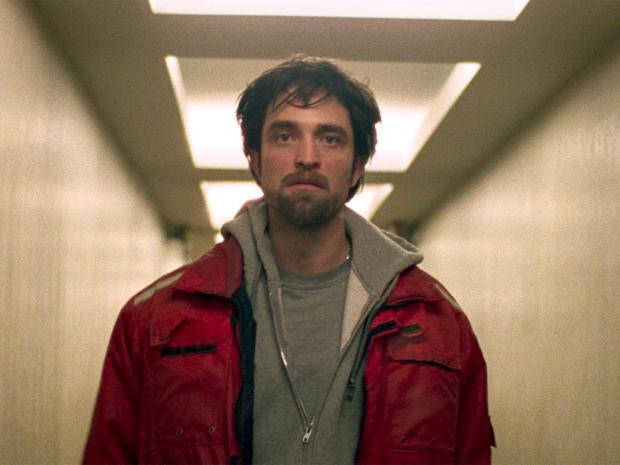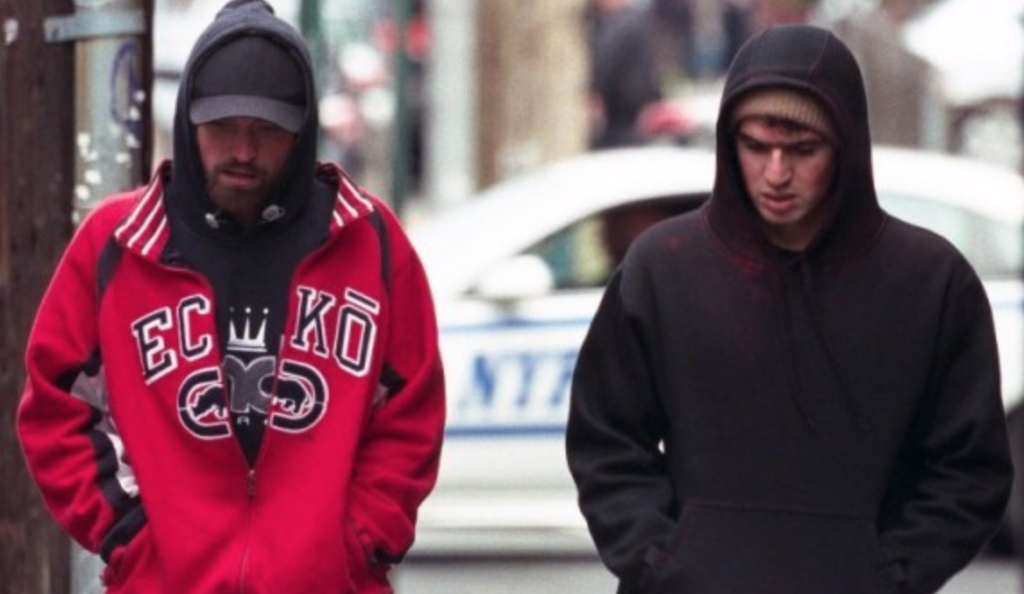I thought I was walking into a post-Twilight trainwreck. Instead I think I just saw the next Trainspotting.
Genre: Thriller
Premise: When his brother is thrown in jail after a bank robbery gone bad, a low-life street thug will do anything to bail him out by the end of the night.
About: Good Time is the second feature from the Safdie Brothers (Ben and Josh), who call Good Time their “first real movie.” Robert Pattinson, who stars in the film, reached out to the brothers after seeing a still image from their first project and basically begged them to be in their next movie. The brothers reluctantly cast him, unsure if he could handle the role. The film premiered at the Cannes film festival, where it received a 6 minute standing ovation.
Writers: Ronald Bronstein, Josh Safdie
Details: 100 minutes
What if I told you that I saw the next Trainspotting?
Would you believe me?
Because I think I just did.
Last week, I was dragged to an early screening of Good Time. I say dragged because the only reason I went was because a friend of mine is a huge Robert Pattinson fan and Pattinson is in the movie. “A Robert Pattinson indie movie?” I said. “Seriously? That’s like, guaranteed bad.”
I know what you’re going to say. He was in Rover and Cosmoplis and Lost City of Z and blah blah blah. But does anybody actually remember those movies outside of festival going cinephiles who check movie websites 12 times a day?
Adding to the potential suckage factor was that I’d never heard of the directors before. That’s typically a bad sign. I was preparing for your average 2 hour experimental indie flick with no story and less direction, a student film on crack.
What I got instead was… well… something wonderful.
Good Time follows Connie (Pattinson), a low-life piece of shit who keeps his older girlfriend around specifically to squeeze money out of her whenever he needs to get out of trouble or score his next high. The only good thing Connie does is take care of his mentally challenged older brother, Nick.
At the beginning of the movie, Connie rips Nick out of a center for handicapped people, furious that these assholes keep trying to institutionalize him. Ironically, Connie then preps Nick to rob a bank with him (was he really worse off at that center)? Everything goes smoothly until the dye pack explodes on the money, resulting in a dash for freedom. But the cops end up catching Nick.
Connie then must find 10 grand to bail his brother out of jail, who will be helpless otherwise. He tries to get his girlfriend to pay up but her credit card is declined. In a stroke of good luck, Nick is beaten up in jail, and transferred to the local hospital. Connie then breaks into the hospital and rescues him.
I won’t tell you what happens next but I will say that everything goes to shit and that the first half of the movie, which was relentlessly paced, is nothing compared to the second half, where things truly get fucked up. Connie will go to the limit to save his brother, and that means nobody will get in his way.
Here’s the thing that surprised me most about this screenplay: URGENCY.
Every damn indie film I watch is devoid of urgency. They’re all wrapped in “Feelings” and “Serious” molasses, strolling down slow-as-shit lane, trying to make points about the world or the human condition or whatever. And then something like Good Time comes along and shows you that you can do all that but STILL ENTERTAIN AUDIENCES.
I think that’s why Trainspotting stood out so much when it debuted. When you write something with this kind of urgency, it’s impossible not to take notice. These movies will always stand out.
But it wasn’t just the pace that impressed me. Let’s look at one of the classic screenwriting dilemmas, which Good Time faces in spades: A terribly unlikable main character.
I mean, this guy is just a bad dude on every level. There’s a scene early on where Connie shows up at his older girlfriend’s house (played awesomely by Jennifer Jason Leigh) and as soon as the girlfriend’s mom sees him she starts screaming for her to close the door. She knows what Connie means. Connie means, “I’m here to take more of your money.”
He wrestles his girlfriend away and, on the way to the police station, slowly and heartlessly manipulates her. It’s truly awful behavior.
So why do we still root for someone like Connie? Do you want to take a guess? C’mon. Those of you who have been reading this site should know. I’ll give you a minute to ruminate.
Because Connie loves his mentally challenged brother more than anything. If you want to make a bad protagonist likable, that’s all you have to do. No, you don’t have to write in a retarded family member. But place a family member in some sort of a weakened state (someone’s trying to take advantage of them), have your protagonist fight to the death for that character, and we’ll like him. We’ll root for him NO MATTER WHAT.
But the screenwriting good times didn’t stop there. Whenever you have a full-on super-paced thriller script, where you’re racing from start to finish, there will always be one section, near the midpoint, where you stop, rest, and recuperate. This section always lasts about 10-15 minutes.
I can tell if a writer knows what he’s doing by how he approaches this section. Because 9 times out of 10, this section will consist of one character telling another character some sad backstory, which is the most boring choice you can possibly make.
If you can somehow make this section unexpected and interesting, I know you’re a badass screenwriter. Because it’s hard to make the one slow section in your script stand out from the rest of it.
In Good Time, this section has Connie getting stuck in some Jamaican woman’s home (he’s hiding from the cops). Connie starts hanging out with this woman’s underage granddaughter. The two have this awkward energy and you just know things are going to get weird. I won’t go into detail about what happens. But we’ll just say that when they’re watching TV and Connie’s face comes up on the local news, Connie does something nontraditional to get the girl to overlook that a criminal is in her house.
And I haven’t even gotten into the score, which is freaking amazing. It’s this constant pulse-pounding beat accompanied by these blaring eighties synth-chords that often become the focus of the scene. I haven’t experienced a soundtrack that’s added this level of atmosphere to a movie since Blade Runner.
I’d say that film was a clear influence to the Safdie’s, along with Drive and Trainspotting.
After the film, there was a question and answer session with the directors and Pattinson. These things are always a little awkward, and this one was no exception. Pattinson told a story about how he reached out to the directors after seeing the poster for their first movie and told them he wanted to work with them. The brothers openly discussed (right in front of Pattinson) that they had no intention of e-mailing him back because he wasn’t a good enough actor for the kind of movie they wanted to make.
But they ended up taking a chance on him and it’s looking like a good one for everybody involved. This is easily Pattinson’s best performance and this is the kind of movie that whether you like it or hate it, you will never forget it. It’s a neon-infused nightmare thriller that introduces the world to two talented directors who will be around for a long time.
[ ] What the hell did I just watch?
[ ] wasn’t for me
[ ] worth the price of admission
[x] impressive
[ ] genius
What I learned: In a thriller, your midpoint will almost always consist of your characters resting and recuperating for 10-15 minutes. This section is needed to allow the audience to take a breath and get ready for the second half of the film. However, don’t slack in this section. Try to do something interesting with it. Throw a few unexpected choices in there. And definitely don’t have your protagonist tell some other character about a story from their past. EVERYBODY does that. Instead, tell us about your character THROUGH THEIR ACTIONS AND CHOICES RIGHT NOW, IN THIS SCENE.



